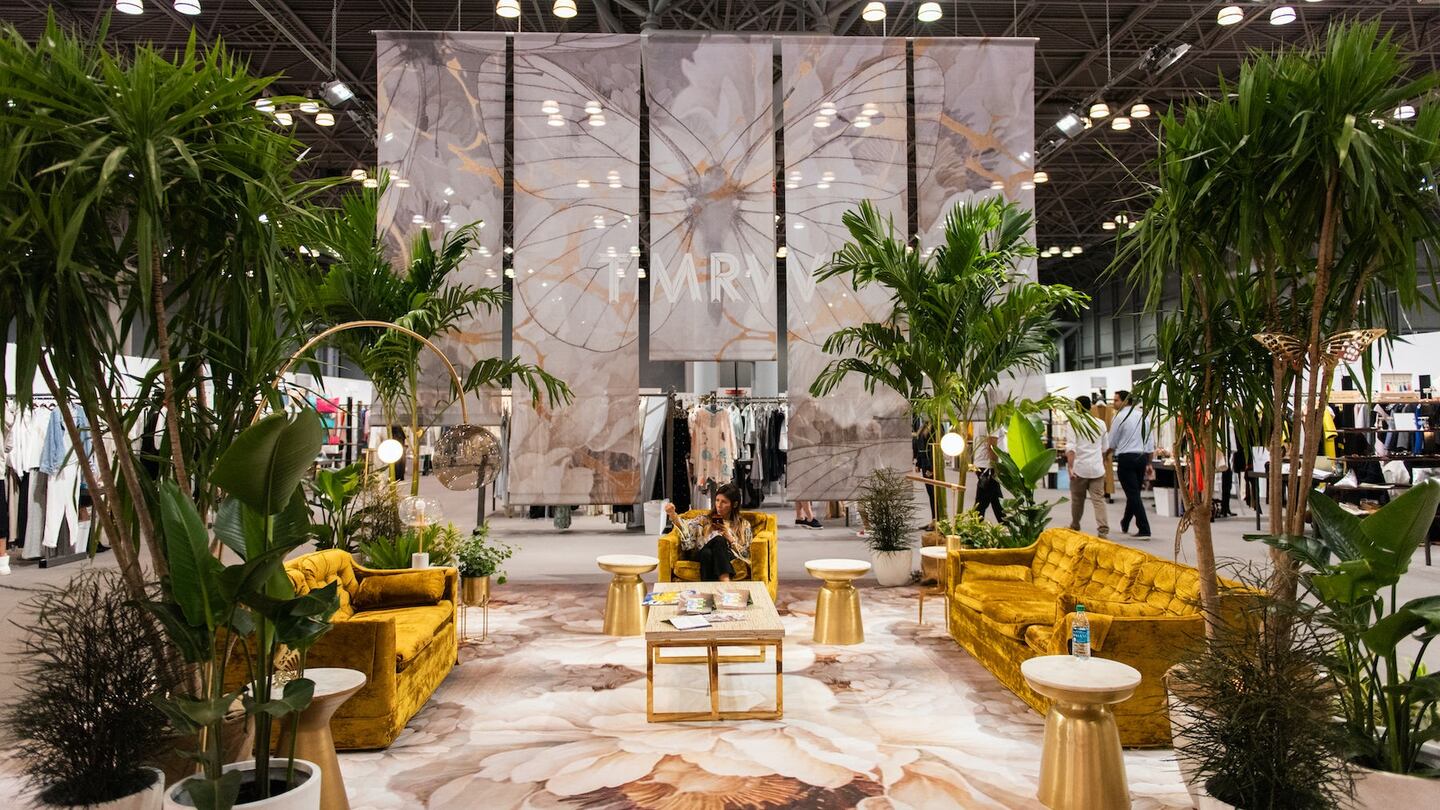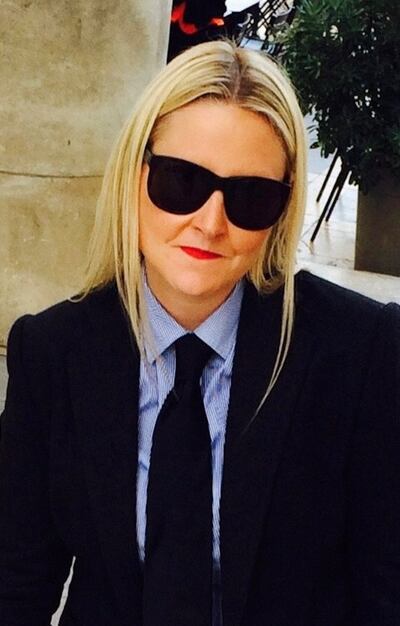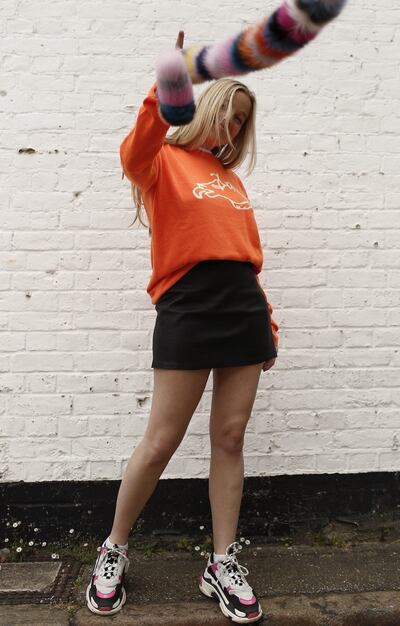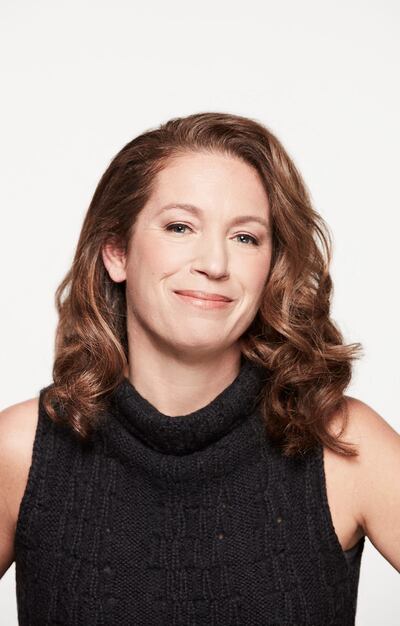
The Business of Fashion
Agenda-setting intelligence, analysis and advice for the global fashion community.

Agenda-setting intelligence, analysis and advice for the global fashion community.

NEW YORK, United States — Taking place during New York Fashion Week for the first time, Coterie, New York's biggest trade show for apparel, accessories and footwear for women, plays a central role in the global wholesale market. As a partner to exhibiting brands and attending retail buyers, the trade show's role has evolved in time as new opportunities and challenges have disrupted the sector.
Wholesale remains a fundamental step for many fashion and luxury brands looking to enter new markets, grow brand awareness and tailor product-market fit. To discover both the opportunities and challenges facing brands with wholesale businesses today and how important the tradeshow format remains for both established and emerging businesses, BoF sits down with four brands showcasing at Coterie this February: California-based denim brand Lucky Brand; British accessories and outerwear brand Charlotte Simone; Australian denim brand Ksubi; and Canadian upcycled fur label Furb.

Lexi Tawes, acting chief product officer for Lucky Brand | Source: Courtesy
Lexi Tawes, Acting Chief Product Officer for Lucky Brand
The American denim company was founded in California in 1990 and has more than 250 standalone stores across the globe.
Why are trade shows important to your business?
A large part of our business, specifically with our specialty accounts, comes from the trade shows. They give us a platform to showcase and market our product and tell our story — to build brand awareness.
We’re also able to work with a broad customer base at one time and our sales team is able to network and develop new customers. We also see what the competition is doing and potentially learn about new products and trends.
With Coterie specifically, because it is located in New York during fashion week, it allows us to take advantage of the buyers that are in town for fashion events and potentially acquire a more elevated customer.
What challenges do you face in the market today?
As business has evolved, each retailer wants a point of difference, something to set themselves apart for their customers. We work closely with our accounts to help personalise assortments to best suit their needs. As the digital space has become a growth vehicle, we are evolving how we partner and meet their needs as the customer is increasingly shifting to digital sales.
What are the greatest opportunities for independent brands in today’s market?
With the unprecedented shifts in customer demand right now, independent brands have the opportunity to win with new products and ideas that really resonate with their customer segment. As legacy retail continues to need to evolve, these brands can be more nimble and poised to meet the modern consumer’s needs.

Charlotte Beecham, founder and creative director of Charlotte Simone | Source: Courtesy
Charlotte Beecham, Founder and Creative Director of Charlotte Simone
The London-based faux fur accessories and outerwear brand launched in 2014 and was awarded Breakthrough Accessory Designer by the British Fashion Awards and Accessory Designer of the Year by WGSN.
Why are trade shows important to your business?
We do all we can to get noticed by the big players, so any opportunity to be picked up by a major retailer is something we are interested in. Trade shows allow us to create a branded space among a hub of buyers and players, where we can schedule appointments from around the globe all in one place.
The buying season is always frenzied but if you have a good product and a good display, you can really stand a chance of catching the attention of major retailers.
What challenges do you face in the market today?
The biggest challenge I face is the high street, as the competition is incredibly fierce and copycat fashion is faster and better than ever before. I’ve learnt the hard way that time and energy is better spent looking forward to what’s next, rather than fighting what you perceive to be unfair.
How are you meeting these challenges?
As a small brand, I do everything and anything — from designing to selling to logistics to production. I can be front facing with my buyers and get to grips with what works for them and why, as it’s important to understand what your customer is looking for and design accordingly.
As a small brand, Coterie is a huge investment for us, but having done it last year and seen the results, we are excited to be back. Previously we were meeting with American stores by lugging suitcases around from meeting room to meeting room. The US is our second biggest market after the UK, so it’s great to have a legitimate space to meet with those who support the brand and also pick up some new interest while we’re here.

Craig King, chief executive of Ksubi | Source: Courtesy
Craig King, Chief Executive of Ksubi
The Australian denim brand, founded in 1999, offers men's and womenswear lines and is stocked by the likes of Selfridges, Kith, Ssense and End.
Why are trade shows important to your business?
Aside from the obvious — getting your product in front of accounts you might not see in your usual practises — it’s a great opportunity for the exchange of ideas. Whether that’s concentrated feedback from the many accounts you see or brand-to-brand interactions that your teams experience throughout the show, we always feel we come away with greater insights and ideas to further explore in the future.
The digital and social media age has also meant we can have a more one-on-one relationship with our customers and it has been a game changer, but it has its limitations and we still hold great significance in the positioning and selection of our wholesale accounts in different regions. Quality buying and merchandising retailers can’t be replaced for service, product knowledge and customer experience.
What challenges do you face in the market today?
Cutting through the noise is the modern challenge. This is the “attention economy,” with consumers being bombarded by feeds and digital ads, so making sure your brand stands for something is vitally important. It’s also not just the consumers who are spoilt for choice — it’s the brands too, as communication methods have exploded in the last 10 years.
As most brands also now have their own e-commerce site and social platforms, wholesalers are now also competing with their own accounts. However, that means wholesale and retail also now share the same challenges and are playing by the same rules, discovering new ways to work together for greater outcomes.
How do you differentiate yourself in the market?
By understanding who our customer is and what their needs are, which directs the myriad of strategic choices we need to make to drive success. Historically, this was an intuitive process, but today we have so many data points so we can apply the art and science of fashion to inform our decision making.

Christina Nacos, Founder of Furb | Source: Courtesy
Christina Nacos, founder of Furb by Natural Furs
The Canadian fur label repurposes fur garments into fashion and home accessories. It is an offset of Natural Furs, which has been the licensee of Revillon and Dior.
Why are trade shows important to your business?
Going to the trade shows enables us to see what is going on with consumer’s trends and talk directly with the buyers. There is a community there and [we see] trends and relevant changes that we could struggle to keep up with as a manufacturer in Montreal.
Another reason for the trade shows is that we get to meet and greet [buyers] at the time of need. We can educate stores and ask questions, discuss the product and explain why our fur is unique and should be in their store. Seeing what others are doing in terms of fabrics, product sourcing, manufacturing hubs — that’s one of the things we look forward to in New York.
What challenges do you face in the market today?
In terms of production, we also face instability globally. The effects of the coronavirus, for example, means they're cancelling trade fairs left, right and centre. But manufacturing locally means we are a little bit buffered by some of the instability. We've seen our distribution channels slowly close as the department stores have closed their doors first. That's a unique challenge to our industry and getting product to the consumers quicker has certainly been something that manufacturers have not been able to do.
How are you facing these challenges?
Because ours is a recycled fur product, it’s about educating stores on what upcycled means, why recycled, why sustainability is important. And rather than grow rapidly, we are also being careful with how much we are producing as part of our efforts to be more sustainable and personalise products.
We're also trying to drive the business by putting it online faster, getting more feedback and reaching out to specialty stores. They're much more nimble — they're able to adapt to lifestyle changes easier than compartmentalised departments, which definitely has since changed how we do business.
This is a sponsored feature paid for by Coterie as part of a BoF partnership. To discover more about Coterie, please click here.
From analysis of the global fashion and beauty industries to career and personal advice, BoF’s founder and CEO, Imran Amed, will be answering your questions on Sunday, February 18, 2024 during London Fashion Week.
The State of Fashion 2024 breaks down the 10 themes that will define the industry in the year ahead.
Imran Amed reviews the most important fashion stories of the year and shares his predictions on what this means for the industry in 2024.
After three days of inspiring talks, guests closed out BoF’s gathering for big thinkers with a black tie gala followed by an intimate performance from Rita Ora — guest starring Billy Porter.